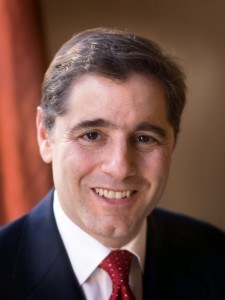Federal Communications Commission Chairman Julius Genachowski is expected to unveil Monday a proposal to formalize Net Neutrality protections as part of FCC policy governing broadband providers.
Genachowski is expected to make a formal announcement as part of his appearance at the Brookings Institution, according to a series of leaks Friday afternoon.
The FCC chairman is expected to introduce Net Neutrality as the fifth spoke in a wheel of principles governing broadband service in the United States. The “Four Principles” of broadband service in the United States was developed to set guidelines providers would follow in return for a hands-off regulatory approach by the Commission.:
- To encourage broadband deployment and preserve and promote the open and interconnected nature of the public Internet, consumers are entitled to access the lawful Internet content of their choice.
- To encourage broadband deployment and preserve and promote the open and interconnected nature of the public Internet, consumers are entitled to run applications and use services of their choice, subject to the needs of law enforcement.
- To encourage broadband deployment and preserve and promote the open and interconnected nature of the public Internet, consumers are entitled to connect their choice of legal devices that do not harm the network.
- To encourage broadband deployment and preserve and promote the open and interconnected nature of the public Internet, consumers are entitled to competition among network providers, application and service providers, and content providers.
- To encourage broadband deployment and preserve and promote the open and interconnected nature of the public Internet, consumers are entitled to open access to content without interference or discrimination by broadband providers.
The fifth principle would become part of formal FCC policy, which should provide assurances that Net Neutrality will be enforced by the Commission staff.
The establishment of Net Neutrality protection would fulfill one of the promises made by President Barack Obama during his presidential run in 2008. The Obama Administration has consistently advocated Net Neutrality as a core tenet of American broadband service.
Genachowski is expected to underline the seriousness of his proposal by including wireless providers in the definition. That would subject mobile broadband providers to the same rules wired providers face, an important distinction that could put a stop to wireless phone companies acting as gatekeepers to block third party software applications designed to bypass those companies’ networks and calling plans. iPhone owners in particular have been subjected to restrictions on the types of software and services they are allowed to use on their phones used on the AT&T network.
Consumer advocates are widely anticipated to applaud the FCC’s action, but some remain concerned that an FCC rulemaking by itself does not provide the robust protection federal law would provide, particularly if an administration in power appoints FCC Commissioners uninterested in enforcing it. A bill has been introduced in the House of Representatives to make Net Neutrality the law, not just an FCC policy. Passing the legislation provides even stronger guarantees that Net Neutrality principles will be respected.
The move by Genachowski to move forward on formalized Net Neutrality protection now may have come after the Commission watched a federal court throw out other informal FCC policies as unconstitutional. Comcast has a pending lawsuit against the FCC after the Commission ordered Comcast to stop interfering with peer-to-peer traffic on its broadband network. Comcast objected to the FCC involvement and feels the Commission exceeded its authority. Should a judge agree, in the absence of a more formalized FCC rulemaking, Comcast would be free to resume throttling the speed of certain traffic on its broadband service.
An FCC rulemaking could provide ammunition to Net Neutrality critics that passage of a federal law would be redundant and unnecessary.
Net Neutrality critics argue that broadband networks should be free to manage the traffic on their service as they see fit, suggesting the goal of providers is to provide a consistent level of broadband service to all of their customers. They suggest consumers that find network traffic policies too onerous would take their business elsewhere, discouraging provider excess.
But advocates for Net Neutrality argue the industry can leverage an undercompetitive marketplace to throttle and restrict traffic — reducing the traffic load on and the need for upgrades. In the absence of robust competition, other providers would could follow suit. Net Neutrality advocates are also concerned broadband providers may attempt to monetize premium levels of service for content creators. In return for a fee, content providers would be assured of enhanced speeds and performance in reaching that ISP’s customers, while those who don’t pay find themselves on a broadband “slow lane” that could make them uncompetitive.
Genachowski’s proposal is likely to permit broadband networks sufficient flexibility to do some network management, such as blocking denial of service, spam, and virus attacks, but not allow providers to prioritize traffic based on fees.


 Subscribe
Subscribe



